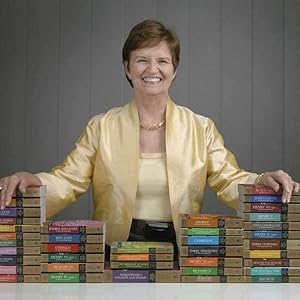Robert Bagg
关于作者
Robert Bagg, born on 21 September 1935, grew up in Millburn, New Jersey. In high school he played varsity golf, JV football, and began to publish humorous sketches (modeled on those of Robert Benchley) in the school newspaper. Impressed by the extreme poems, exotic personality, romantic adventures, and harsh death by drowning of Percy Bysshe Shelley, Bagg decided to make writing poetry and studying literature his lifetime calling. His parents did not disapprove, but sent him to Amherst College (his father's alma mater) thinking that its faculty would either endorse or discourage their son's chosen vocation. In college Bagg studied first with Walker Gibson and then with James Merrill, who told him to forget Shelley and his imaginary landscapes and write about the adventures of his suburban youth. He took their advice and wrote several narrative poems in iambic pentameter about boyhood pranks and adventures in his Sagamore Road neighborhood, one of which was made into a film by Richard Wechsler, who later became a Hollywood writer and producer. At Amherst Bagg alarmed Robert Frost, who chided him for writing about sex, noting that Yeats waited until old age to broach that aspect of experience. In 1957 Bagg won the Mount Holyoke College Glascock Memorial Poetry Prize, judged that year by Howard Nemerov, Anthony Hecht and Andrewes Wanning. Bagg's Greek professors at Amherst, John Moore and Thomas Gould, became lifelong friends who fostered his self-confidence and the necessity for self-criticism in equal measure. Both Moore and Gould urged him to translate a short satyr drama, The Cyclops by Euripides, for his roommate Ralph Lee to direct as a senior project; Lee crafted gorgeous papier-machê masks for the play's huge one-eyed monster and directed the 50 minute play with gusto. Just before graduation Bagg and Lee collaborated on an original play, based on the Nausicaä episode of Homer's Odyssey. That undergrad exposure to Greek drama set Bagg on a lifelong career vector: translating the Athenian playwrights into contemporary speech. Immediately after graduating from Amherst, Bagg spent two years in France and Italy on fellowships (the first year's from Amherst, the second year's from the American Academy of Arts and Letters) with his first wife Sally Robinson and a growing family. (The first two of the couple's five children--Ted and Christopher--were born respectively in Cap d'Antibes and Rome; Jonathan, Melissa, and Hazzard were born stateside.) While abroad he wrote his first book of poems, Madonna of the Cello (Wesleyan University Press, 1961), which was a finalist for both the 1962 Pulitzer Prize and National Book Award in poetry. The experience of hanging out with expats and natives in France and Italy--and of immersing himself in two sophisticated ancient cultures--provided Bagg subjects and perspectives that he developed in his later poetry. After Europe, Bagg went for a semester to Harvard, studying Antigone in Greek with John Finley and Yeats with John Kelleher. He then won a Sputnik-inspired National Defense Fellowship to the University of Connecticut, where he earned a PhD in English literature in 1965. His dissertation described autobiographical poetry from Archilochus and Sappho to Sexton and Plath. At UConn he met the poet, essayist, and translator James Scully. Bagg taught briefly at the University of Washington (1963-65), and for the rest of his career at the University of Massachusetts, Amherst, where he served as graduate director (1982-86) and English Department chair (1986-92). He specialized in English Romantic poetry, modern poetry, and great books from English and European literature. In 1996 he retired at 60, making up for time lost as an administrator by translating and publishing more Greek plays, as well as literary essays and poems. In the same year Bagg & his first Sarah Robinson divorced and he married Mary Bauman, a free-lance writer & editor in 1997. To date Bagg has published six full-length books of poetry. His first book, MADONNA OF THE CELLO, was a finalist for both the Pulitzer and the National Book Award. Later volumes include THE TANDEM RIDE and HORSEGOD. His poems have been included in 21 anthologies of verse. Oxford University Press published in 1978 Bagg's translation of Euripides' Hippolytos; subsequently the University of Massachusetts Press published his translation of Euripides' The Bakkhai and the Oedipus Plays of Sophocles. Harper Perennial acquired the rights of these translations and in February 2012 published THE COMPLETE PLAYS OF SOPHOCLES (co-authored with James Scully). Bagg translated Oedipus The King, Antigone, Oedipus at Colonus, Elektra and Women of Trakkhis; Scully Aias and Philoktetes. Bagg's translations of Euripides' Hippolytos and The Bakkhai and of Sophocles' Oedipus the King, Antigone, and Women of Trakhis have been variously staged in 72 productions on four continents. The three most recent productions include: Hippolytos at Barnard University in October 2008 and The Bakkhai (with a rock opera score) in September 2009 at the University of Utah. His Antigone was staged at Adrian h.s. in Adrian Michigan in 2015. Ingram Merrill, Guggenheim, Rockefeller, and NEH fellowships have supported Bagg's projects. In 2007 he received a "We The People" Fellowship from the National Endowment for the Arts in support of his critical biography of the poet Richard Wilbur, co-authored with his wife Mary. The biography, Let Us Watch Richard Wilbur: A Biographical Study, was published by The University of Massachusetts Press in February, 2017. He is currently completing translations of four plays by Euripides: Medea, The Bakkhai, Hippolytos, and Cyclops. Robert & Mary live in Worthington, Massachusetts, with his wife Mary Bagg, They married in 1997.
阅读完整简历书籍
亚马逊音乐
畅听海量歌曲亚马逊广告
吸引买家
无论他们身在何处
消磨时光6pm
对时尚品牌
进行评分AbeBooks
图书、艺术
和收藏品ACX
有声读物出版
轻松实现我要开店
启动卖家账户Veeqo
运输软件
库存管理
亚马逊企业采购商城
您的企业
所需的一切亚马逊海外购
配送订单
国际亚马逊云科技
可扩展云
计算服务Audible
下载
有声读物Box Office Mojo
查找电影
票房数据Goodreads
电子书评论
和建议IMDb
电影、电视
和名人








